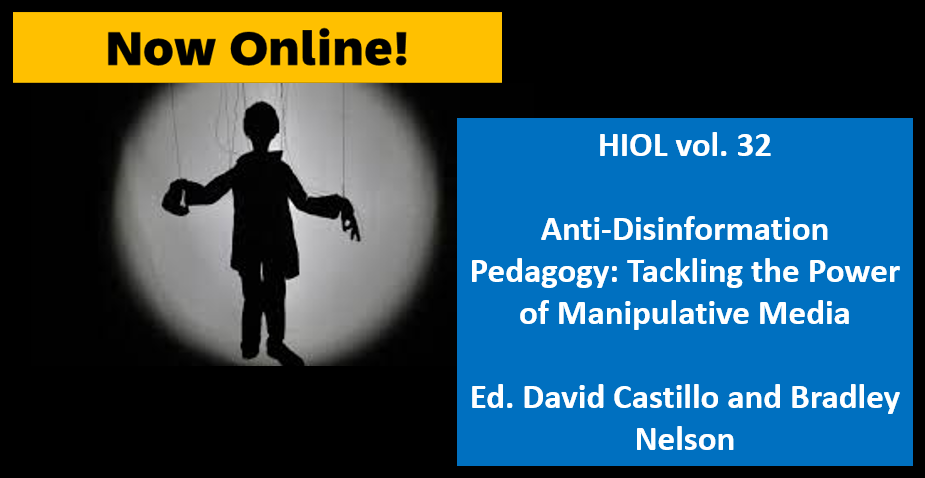A new volume of Hispanic Issues Online, edited by David Castillo and Brad Nelson, is focused on the topical theme of Anti-Disinformation Pedagogy: Tackling the Power of Manipulative Media.
The editors note that:
“Disinformation is the cognitive, political, and social plague of the 21st century. Its prevalence and in/visibility, with lightning-fast images, memes, and stories, regardless of verity thanks to social media algorithms, AI, and verbal gamesmanship, is witnessed in the flood of (mis)representations of the catastrophic events in Israel/Gaza, the 2024 United States Presidential election, and rising nationalisms in Europe and the Americas that expose minorities across a wide spectrum of geopolitical contexts to unspeakable symbolic and material violence. The explosion of maliciously fabricated content has spurred specialists in scientific and humanistic disciplines (Information Studies, Media Studies, Library Studies, Political Science, Cultural Studies, Education) to identify, analyze, and disrupt disinformation.
The goal of our volume is to bring together specialists in Hispanic literary, media, education and sociological criticism in early and late modernity to engage participants in critical methods to combat disinformation and equip teachers and professors with pedagogical methodologies and tools to cultivate students' media and reality literacy.”
The volume is available open access, and features several articles by the editors, with one co-authored by Nelson and Vivek Venkatesh (Faculty of Education, McGill University) addressing how social pedagogy can combat social media-fueled othering and hate.



 Brad Nelson (Department of Classics, Modern Languages and Linguistics, Concordia University)
Brad Nelson (Department of Classics, Modern Languages and Linguistics, Concordia University)